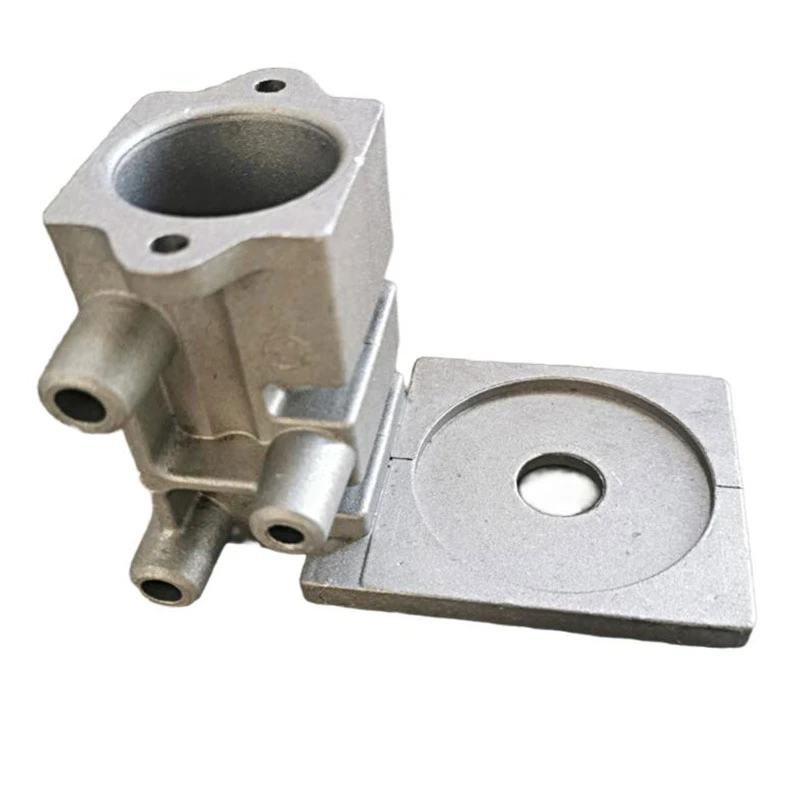precision aluminum casting
Precision Aluminum Casting A Gateway to High-Performance Applications
Precision aluminum casting has emerged as a key technique in the manufacturing sector, offering unparalleled accuracy, surface finish, and mechanical properties. As industries demand components that not only meet stringent tolerances but also exhibit lightweight characteristics, aluminum casting processes have evolved to meet these challenges. This article delves into the intricacies of precision aluminum casting, its benefits, applications, and the future of this innovative manufacturing method.
Understanding Precision Aluminum Casting
Precision aluminum casting refers to a range of casting processes designed to produce aluminum parts with intricate details and tight tolerances. Common methods include investment casting, die casting, and lost foam casting. Each process has unique advantages, but they all share the ability to produce high-quality parts that can significantly reduce the need for further machining.
Investment casting, also known as lost-wax casting, is one of the oldest techniques and is widely favored for its ability to create complex shapes with smooth surfaces. Here, a wax pattern is coated with a ceramic material. Once the ceramic is hardened, the wax is melted away, leaving a cavity that is then filled with molten aluminum. This process allows for high detail and accuracy and is often used in industries where precision is paramount, such as aerospace and medical devices.
Die casting, on the other hand, involves forcing molten aluminum into hardened steel molds. This method is highly efficient for mass production and delivers parts with excellent dimensional accuracy. Die casting is widely used in automotive components, toys, and hardware due to its ability to produce lightweight yet durable products.
Lost foam casting combines the benefits of both investment and traditional sand casting techniques. It utilizes a polystyrene pattern that evaporates upon contact with molten aluminum, leaving an incredibly detailed and smooth finish. This method is gaining traction in various sectors for its simplicity and cost-effectiveness.
Advantages of Precision Aluminum Casting
1. Tight Tolerances One of the hallmark benefits of precision aluminum casting is the ability to maintain tight tolerances. This is essential for components that require exact fit and function, reducing the need for costly machining processes post-casting.
2. Complex Geometries The intricate designs achievable through precision casting are invaluable in modern manufacturing. Producers can create complex geometries that would be difficult or impossible to achieve with traditional fabrication methods.
precision aluminum casting

3. Weight Reduction Aluminum is known for its lightweight properties, making it an ideal material in industries such as automotive and aerospace where weight reduction is critical for performance and fuel efficiency. Precision casting allows manufacturers to create thin-walled structures without sacrificing strength.
4. Sustainability Aluminum casting is considered a sustainable manufacturing option. Recycled aluminum can be used in the casting process, which reduces waste and energy consumption. Additionally, aluminum components are often recyclable at the end of their life cycle.
5. Enhanced Mechanical Properties Precision casting processes can yield parts with superior mechanical properties. Depending on the alloy used and the casting method, manufacturers can achieve high strength-to-weight ratios, excellent corrosion resistance, and improved fatigue life.
Applications Across Industries
The versatility of precision aluminum casting makes it suitable for a wide range of applications across various sectors
- Aerospace Components such as aircraft frames, engine mounts, and structural parts benefit from the lightweight nature and strength of aluminum. - Automotive Fuel-efficient engines, transmission cases, and suspension components utilize precision casting for optimal performance and weight savings. - Electronics Heat sinks and housings for electronic devices require precise and efficient thermal management, which precision casting can provide. - Medical Devices The healthcare industry demands components that are not only precise but also meet rigorous safety standards, making precision aluminum casting a preferred choice.
The Future of Precision Aluminum Casting
With rapid advancements in technology, the future of precision aluminum casting appears bright. The integration of computer-aided design (CAD) software and simulation technologies allows engineers to optimize designs for better performance while minimizing waste. Additionally, the rise of additive manufacturing techniques could complement traditional casting processes, leading to hybrid manufacturing methods that enhance efficiency.
In conclusion, precision aluminum casting stands as a cornerstone of modern manufacturing, driving innovation and efficiency across numerous industries. With its ability to produce lightweight, complex components that meet high standards of quality, this technique is poised to play an increasingly vital role in the future of engineering and manufacturing. As technology continues to evolve, it will unlock new possibilities and applications, reinforcing the importance of precision aluminum casting in today’s and tomorrow's markets.
-
OEM Sand Cast Pump Valve Fittings - Hairun Sourcing | Precision Engineering, Industrial EfficiencyNewsJul.13,2025
-
EcoGuard 3000 - Sustainable Agriculture Solution&Soil Health ImprovementNewsJul.13,2025
-
SmartAgri Solutions: Smart Farming Tech | AI Analytics & IoT SensorsNewsJul.13,2025
-
[Product Name]-[Company Name]|Business Efficiency&InnovationNewsJul.13,2025
-
Smart Factory Solutions-Industrial Efficiency|Real-Time Analytics&Automated WorkflowNewsJul.12,2025
-
OEM Sand Cast Pump Valve Fittings - Hairun Sourcing | Durable, Reliable, CustomizedNewsJul.12,2025















